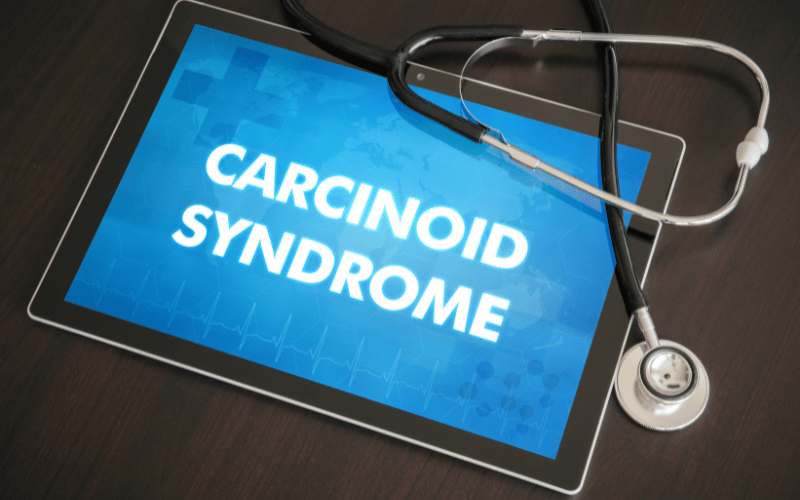Introduction: Delving into Carcinoid Syndrome
Carcinoid syndrome is a rare medical condition that arises from carcinoid tumors. These tumors are specific types of neuroendocrine tumors, primarily found in the gastrointestinal tract or lungs.

When these tumors release certain chemicals into the bloodstream, a variety of symptoms can manifest, significantly impacting an individual’s life. It’s crucial to have a clear and detailed understanding of this condition for its effective management and treatment.
This syndrome is relatively rare, making it all the more important to spread awareness and knowledge about it. Individuals diagnosed with carcinoid syndrome often experience a range of symptoms that can be both perplexing and challenging to manage. The condition is complex, with various facets that need to be explored to provide a comprehensive overview.
In this detailed introduction, we’ll embark on a journey to unravel the mysteries of carcinoid syndrome, delving into its causes, symptoms, and the impact it has on those affected. We aim to provide valuable insights and information to help you understand this condition better.
With a focus on the 15 essential facts about carcinoid syndrome, this article is designed to equip you with the knowledge you need. From understanding the risk factors and causes to recognizing the symptoms and exploring treatment options, we’ve got it all covered. So, let’s dive in and explore the intricacies of carcinoid syndrome together.
1. The Origin and Causes of Carcinoid Syndrome

Understanding where carcinoid syndrome comes from and what triggers it is paramount. The majority of carcinoid tumors originate in the gastrointestinal tract or lungs. However, they can also occur in other parts of the body, including the pancreas, testicles, and ovaries.
These tumors are unique because they are capable of producing and releasing various chemicals into the bloodstream. The most common of these chemicals is serotonin, a neurotransmitter that plays a crucial role in mood regulation, among other functions. In excess, serotonin can lead to the various symptoms associated with carcinoid syndrome.
However, not all carcinoid tumors will lead to carcinoid syndrome. The syndrome typically occurs when the tumor has spread to the liver, allowing the chemicals produced by the tumor to enter the bloodstream directly. This is because the liver usually breaks down these chemicals before they have a chance to cause any harm.
Several risk factors can increase the likelihood of developing carcinoid tumors and, consequently, carcinoid syndrome. These include a family history of multiple endocrine neoplasia type 1 (MEN1), a hereditary condition that increases the risk of developing tumors in the endocrine glands. Additionally, certain chronic stomach conditions that reduce the production of stomach acid can also increase risk. (1)